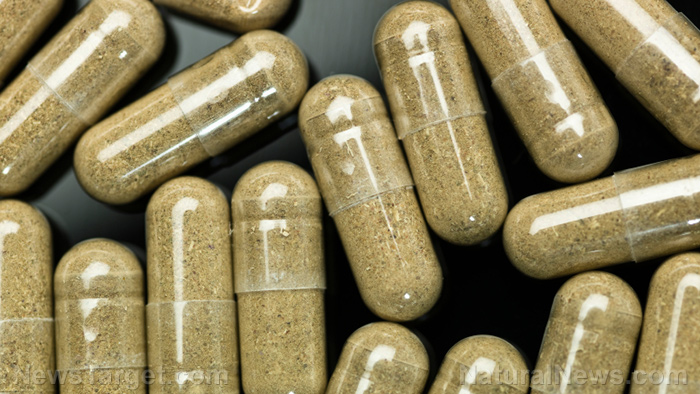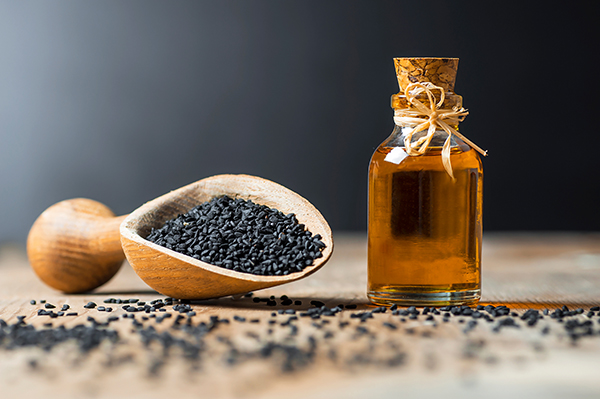3 Key health benefits of vitamin D, the sunshine vitamin
11/21/2022 / By Olivia Cook

Known as the “sunshine vitamin,” vitamin D is essential for the body’s important systems. When the skin is exposed to direct sunlight, it triggers the production of vitamin D3 – its natural form.
Vitamin D3 causes cellular differentiation – the opposite of cancer – once it is activated in the liver and kidneys. It can inhibit the growth of malignant cancer cells and prevent the development of new blood vessels that supply nutrients and transport these bad cells throughout the body.
But aside from its anticancer properties, vitamin D also helps the body function properly in more ways than one. Here are three other benefits of the sunshine vitamin.
Vitamin D boosts the immune system
Optimal vitamin D levels have been shown to regulate the immune systems to effectively ward off pathogens. A paper published March 2013 in PLOS One stated that lower vitamin D levels are associated with an increased susceptibility to infection.
Moreover, a study published January 2021 in Current Opinion in Clinical Nutrition and Metabolic Care found that those infected with the Wuhan coronavirus (COVID-19) had a lower death risk when given vitamin D alongside the standard treatment. The authors of the January 2021 study added that if vitamin D is given early enough, COVID-19 mortality risk is slashed by about 60 percent. (Related: Vitamin D found to help reduce COVID-19 risk and severity.)
Vitamin D supports healthy pregnancies
Researchers wrote in an October 2020 study published in Current Opinion in Obstetrics and Gynecology about the benefits of vitamin D supplementation in pregnant women. They argued that doing so could improve maternal and fetal health, and suggested that pregnant women be supplemented with a minimum of 600 international units (IU) of vitamin D for this purpose.
“Low maternal vitamin D status during pregnancy may be associated in infants with a higher risk for lower bone mineral content, enamel defects and attention deficit hyperactive disorder,” they wrote.
Vitamin D strengthens bones
According to a 2010 study published in Nutrients, inadequate vitamin D intake over long periods of time can lead to bone demineralization. Researchers have linked bone demineralization to different conditions, such as osteoporosis (severe bone weakness and brittleness), osteomalacia (bone softening) in adults and rickets in children.
“Few dietary sources naturally contain the vitamin in sufficient quantities to make a significant contribution to requirements,” said the study. Nevertheless, vitamin D intake remains fundamental to ensure stronger and harder bones.
Kerry Clifford, a registered dietitian with the National Dairy Council, said the plant-derived form of vitamin D2 (ergocalciferol) is naturally found in mushrooms. Cholecalciferol, another name for vitamin D3, can be found in fatty fishes, fish liver oils, egg yolks and fortified milk products.
People who rely on their diets for their vitamin D intake typically do not go beyond 288 IU every day on average. In fact, an eight-ounce glass of milk only contains 100 IU – one-sixth the amount many adults need daily.
Vitamin D supplements, however, can help adults reach the 600 IU goal of vitamin D every day. In one instance, women between the ages of 51 and 70 only had a daily vitamin D intake of 156 IU from their diets. Supplementation helped them reached a higher goal of 404 IU.
Check out VitaminD.news for more stories about the sunshine vitamin’s health benefits.
Watch this video that discusses the benefits of vitamin D.
This video is from the Holistic Herbalist channel on Brighteon.com.
More related stories:
Adequate sunlight exposure may offer protective benefits to immune health, study says.
Study: Getting enough vitamin D every day helps reduce diabetes and heart disease risk.
Sunshine and fat burning: Research suggests vitamin D is crucial for your metabolic health.
Sources include:
Submit a correction >>
Tagged Under:
bone health, cholecalciferol, dietary sources, ergocalciferol, food science, health science, immune system, natural health, nutrients, pregnancy, research, sunlight, sunshine vitamin, supplements, vitamin D, vitamin D2, vitamin d3, women's health
This article may contain statements that reflect the opinion of the author
RECENT NEWS & ARTICLES
COPYRIGHT © 2017 REMEDIES NEWS




















